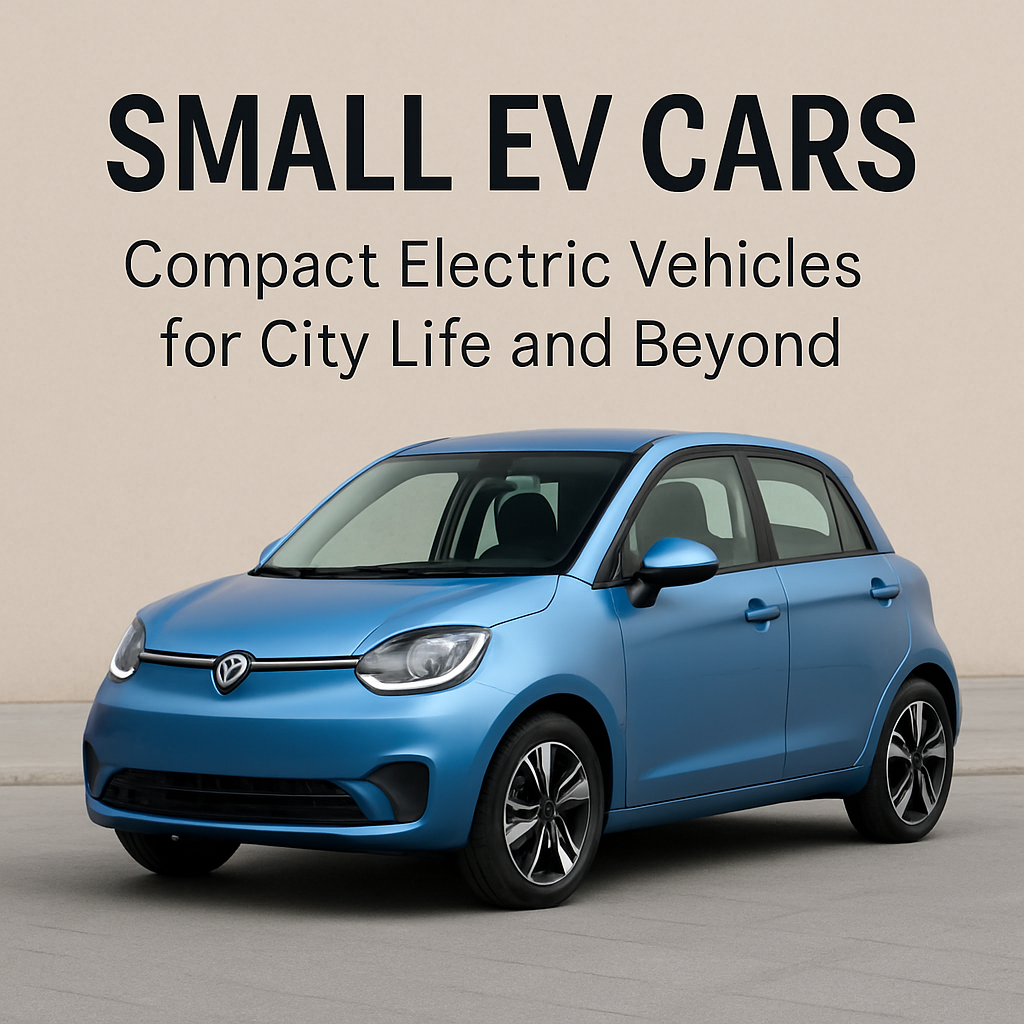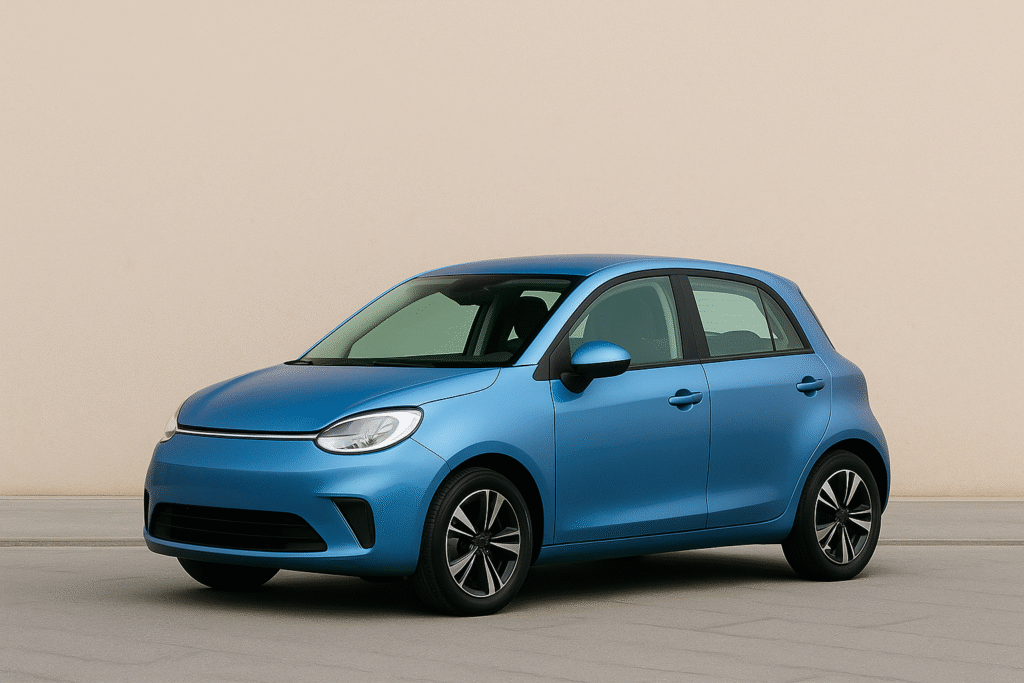1.Introduction

As more drivers seek eco friendly and efficient ways to get around, small ev cars are gaining in popularity around the world. These compact electric vehicles offer city friendly dimensions, lower costs, reduced emissions, and a fun driving experience. In this blog post we will explore what makes small ev cars appealing who benefits most from them key models features how they compare with larger options charging considerations cost of ownership and real world reviews.
Table of Contents
2.What are small ev cars
Small ev cars are electric vehicles designed with a compact footprint. Typically they seat two to four passengers and range from subcompact to city car class in size. They often have modest battery packs that deliver around 100 to 200 miles of driving range. Because they are lighter smaller and simpler than full sized electric SUVs or luxury sedans their price tends to be lower and maintenance costs remain minimal.
Also read: OnePlus Pad Lite Review: 7 Reasons Why It’s the Smartest Budget Tablet in India 2025
3.Key benefits of small ev cars
City friendly size and agility small ev cars are easy to park and manoeuvre in tight urban spaces. Their short turning radius helps negotiate narrow streets or crowded parking garages.
Cost efficiency lower sticker price makes them more accessible to first time ev buyers or those with smaller budgets. Many models include government incentives or rebates to reduce upfront cost.
Energy efficiency smaller vehicles require less energy to move. As a result their electricity consumption per mile is lower compared with larger evs.
Easy charging for owners who rely on home charging small ev cars require smaller home chargers and can reach full charge overnight even on a typical household outlet depending on battery size.
Lower maintenance fewer moving parts and no internal combustion engine means simpler servicing. Regenerative braking reduces brake wear.
Quiet fun driving small electric motors provide instant torque and a responsive feel that many drivers enjoy. Quietness enhances comfort in traffic.
4.Ideal use cases and audiences
Commuters people who travel daily short distances will find small ev cars perfectly suited for their routine. Running costs remain low and home charging works well.
Urban dwellers those who live in cities benefit most from compact size and charge at home or use nearby public chargers when needed.
Occasional drivers those who drive irregularly or short trips can opt for minimal battery range without overpaying.
Budget minded eco drivers environmentally conscious people seeking an electric vehicle but not ready to spend on a large model will appreciate the value small ev cars provide.
Also read: Xiaomi Car Review: 7 Powerful Reasons It’s Revolutionizing the EV Landscape in 2025
5.Popular small ev car models
Here are a few illustrative examples of current small ev car models available in various markets (availability may vary based on country and region).
model a city ev
This two passenger model features a range of around 120 miles on a single charge. Its turning radius is under 5 meters making it ideal for tight city streets. Price remains among the lowest in the ev market.
Model b mini electric hatch
Model b seats four in a clever rear engine layout. About 133 miles of range and a compact footprint make it a clear city commuter favorite. It supports fast charging at public stations for quick top ups.
model c micro suv
A slightly larger small ev with higher ride height and space for four plus moderate cargo capacity. Range may reach 150 miles. It balances city maneuverability with extra versatility.

Model d two seat runabout
Designed for short neighborhood runs and errands this model offers just 80 miles of range but comes at a minimal price. It is not ideal for long drives but performs well within battery limits.
6.Key features to compare when choosing a small ev car
range realistic cruising range per charge and expected performance in cold weather
charging speed home charging time on a level one or level two charger and compatibility with public dc fast charging stations
passenger and cargo space how many people can fit and how much luggage or groceries can it carry
safety ratings crash test performance and presence of safety assistance like lane assist or warning systems
comfort and driving feel suspension quality seat comfort drivetrain responsiveness noise levels
build quality and reliability user reviews from owners general perception of durability after several seasons of use
warranty and support how long the battery warranty is and what kind of roadside or service network is accessible locally.
Also read: Space technology innovations in 2025: 10 groundbreaking advancements reshaping the future
7.Cost breakdown of ownership
- purchase price small ev cars often cost twenty to thirty five thousand dollars before incentives depending on model and region. Incentives from government or local utilities may reduce final price by several thousand dollars.
- charging expenses electricity typically costs much less per mile compared with gasoline. On average a full charge may cost one to four dollars depending on local electricity rates.
- insurance insurance premiums for these compact vehicles tend to be lower than for larger evs or luxury models.
- service and maintenance with no oil changes and fewer parts to wear out, maintenance costs remain modest. Battery cooling or conditioning may involve occasional inspection.
- depreciation small ev cars may lose value faster if range expectations increase over time. However they retain appeal among urban users or those seeking cheap ev alternatives.
8.Charging infrastructure and convenience
public charging network depending on where you live a growing network of level two and fast dc chargers is available. Small ev cars with fast charging capability may take around thirty to forty five minutes to reach eighty percent charge.
home charging if you have a dedicated parking spot home charging brings the most convenience. Charging overnight on a typical level one outlet may take six to eight hours for a around forty kilowatt battery.
shared charging for drivers without home parking or private outlets charging from nearby chargers at workplaces or public garages is common. Many cities also offer curbside chargers for residents.
9.Real world reviews and owner experiences
owners often highlight ease of daily usage and minimal operating cost. Many say they would buy again for city life. Some note range anxiety during longer trips or if climate control usage drains battery faster in extreme temperatures. Winter performance may reduce effective range by ten to twenty percent. Others speak positively about fun driving and compact proportions as strengths.
Also read: Cloud Gaming The Future of Gaming?
10.Pros and cons summary
pros
- compact footprint for parking and urban driving.
- lower cost and operating expenses.
efficient and responsive powertrains. - simplicity and low maintenance.
cons
- limited range compared with larger evs.
- potentially slower charging if not equipped with dc fast charging.
- smaller interior and cargo.
- space resale value may suffer as range expectations grow
Frequently asked questions
1.What is the typical range of small ev cars?
Most small ev cars provide between 80 and 150 miles per charge depending on battery capacity weather driving style and terrain.
2.Can i take a small ev car on long trips?
You can take it on long trips if the model supports dc fast charging and your route has ample charging stations. Planning stops becomes more important.
3.How long does it take to charge a small ev car at home?
On a standard household outlet it may take six to eight hours to fully charge a typical small ev battery. With a level two home charger charging time may drop to three to four hours.
4.Are small ev cars safe?
Many models earn acceptable or above average safety scores from crash testing authorities. Features like rear view cameras stability control and emergency braking assistance are common.
5.Do small ev cars cost less to insure and maintain?
Yes insurance premiums tend to be lower and maintenance needs are reduced compared with internal combustion vehicles or ags with larger batteries.
6.What incentives are available for small ev cars
In many regions tax credits rebates or utility discounts help reduce the purchase price. Eligibility varies by location so check your local government or utility websites.
7.Do they perform well in extreme weather conditions?
Cold winter weather can reduce available range by around ten to twenty percent and slow charging. Battery thermal management and preconditioning features help mitigate these effects.
Conclusion
Small ev cars offer a compelling option for drivers seeking an affordable environmentally friendly and city adaptable vehicle. They excel at short commutes urban errands and effortless parking. Buyers should consider range needs charging access comfort and local incentives when choosing a specific model. For many city and suburban drivers a small ev car represents a smart stepping stone into electric mobility without the higher costs associated with larger vehicles.
